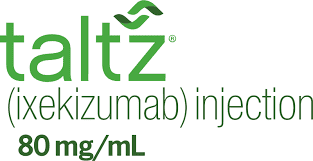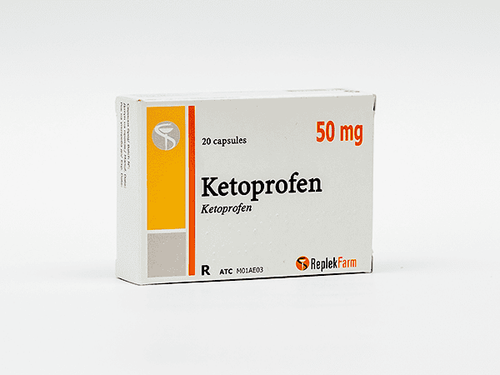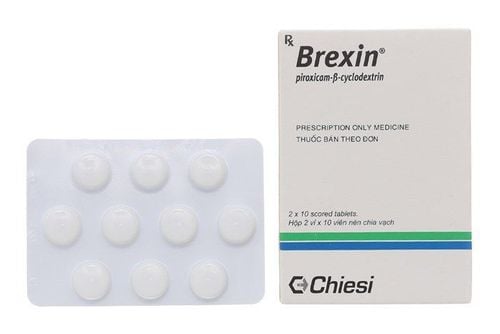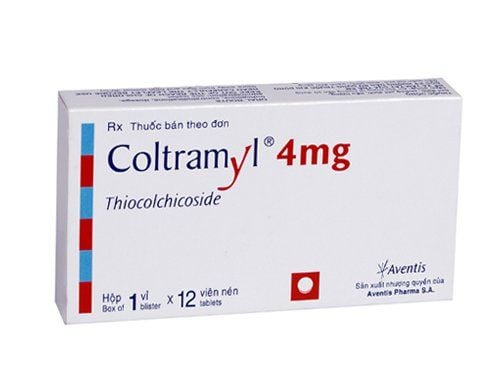This is an automatically translated article.
Certolizumab drug has the main ingredient Certolizumab pegol, which is made in the form of an injection with a concentration of 200m/ml. So what is Certolizumab and how is it used?
1. What does Certolizumab do?
Certolizumab pegol is a recombinant Fab antibody fragment that is active against tumor necrosis factor alpha conjugated to approximately 40kDa polyethylene glycol (PEG2MAL40K).
Certolizumab is indicated in the following cases:
Treatment of Crohn's disease after other methods fail to work; Rheumatoid arthritis ; Psoriatic arthritis; Ankylosing spondylitis ; Plaque psoriasis.
2. Dosage and how to use Certolizumab
Certolizumab is given by subcutaneous injection.
Dosage of Certolizumab should be according to the doctor's prescription. The recommended dose of Certolizumab in some specific cases is as follows:
Rheumatoid arthritis: Initial dose: 400mg subcutaneously (2 times 200mg / time subcutaneously) in the first, 2nd and week Wednesday. Followed by 200mg subcutaneously every week. Maintenance dose: 400 mg subcutaneously every 4 weeks may be considered if needed. Psoriatic arthritis: Initial dose: 400 mg subcutaneously (200 mg subcutaneously twice) at weeks 0, 2 and 4, followed by 200 mg subcutaneously every week. Maintenance dose: 400 mg subcutaneously every 4 weeks may be considered if needed. Ankylosing spondylitis: Initial dose 400 mg subcutaneously (200 mg subcutaneously twice) at weeks 0, 2, and 4, followed by 200 mg subcutaneously every 2 weeks or 400 mg subcutaneously once every 4 weeks. Crohn's disease: Initial dose: 400mg subcutaneously (200mg subcutaneously twice) at weeks 0, 2 and 4. The maintenance dose is 400mg subcutaneously every 4 weeks. Plaque psoriasis : Initial dose: 400mg subcutaneously (subcutaneous injection twice 200mg/time) weekly. For some patients with body weight ≤ 90 kg: 400 mg (subcutaneously twice or 200 mg) at weeks 0, 2 and 4, then 200 mg every other week may be considered. Some notes when using Certolizumab:
Avoid injecting Certolizumab into scars or stretch marks or areas of red, bruised, swollen, hard or tender skin. Ask your doctor before receiving any vaccine while you are being treated with Certolizumab. Avoid close contact with people who are sick or have an infection. Avoid activities with a high risk of bleeding or injury.
3. Certolizumab side effects
Get emergency medical help if you have signs of an allergic reaction after using Certolizumab, symptoms include: Hives, difficulty breathing, swelling in your face, lips, tongue, or throat.
Serious and sometimes fatal infections may occur during treatment with Certolizumab. Tell your doctor if you have signs of infection such as: Fever, chills, sweating, muscle aches, cough, unusual tiredness, open sores or wounds on the skin, feeling short of breath, urinating pain, diarrhea, or weight loss.
Call your doctor right away if you have any of the following symptoms of lymphoma after using Certolizumab, including:
Chest pain, cough, feeling short of breath. Swelling in your neck, under your arms, or in your groin (this swelling can come and go. Fever. Night sweats. Itching. Weight loss. Feeling tired. Feeling full after just eating a small amount. small amounts of food upper stomach pain that may spread to your back or shoulders Certolizumab can cause serious side effects Stop using Certolizumab and call your doctor at once if you have:
Difficulty breathing even with only mild exertion any change in the size or color of a mole, freckle or bump on the skin Neuro-vision problems such as: Dizziness, muscle weakness in the arms or legs, feeling numb, itchy liver problems such as loss of appetite, right-sided stomach pain, fatigue, jaundice (yellowing of the skin or eyes) New or worsening symptoms of lupus such as burning pain and a rash on the skin of the area cheeks, arms become worse under the sentence h morning sun. Common side effects of Certolizumab may include:
Pain or burning when you urinate. Rash. Cold symptoms such as stuffy nose, sneezing, sore throat. Inform your doctor if you see any unusual symptoms appearing when using Certolizumab to be handled promptly.
4. Note when taking medicine
Certolizumab affects your immune system and can cause serious and sometimes fatal infections. Your risk of infection may be higher if you have diabetes, HIV, a weakened immune system, hepatitis B, chronic infections, or if you take certain medications and travel to certain areas. determined.
Using the drug Certolizumab also increases your risk of developing certain types of cancer, including a rare type of lymphoma that can be fatal.
You should not use Certolizumab if you are allergic to it. You may not be able to use Certolizumab if you have symptoms of an infection such as fever, chills, cough, sores on your skin, trouble breathing, weight loss, diarrhea, or painful urination.
If you have ever had TB or if someone in your family has TB, tell your doctor. If you have traveled recently, tell your doctor when and where you have traveled. Tuberculosis and some fungal infections are more common in some parts of the world, and you may have been exposed to it during travel.
Certolizumab can cause a rare type of lymphoma, cancer of the liver, spleen, and bone marrow cancer and lead to death. This mainly occurs in teenagers and young men with Crohn's disease or ulcerative colitis.
However, anyone with an inflammatory autoimmune disorder may have a higher risk of lymphoma. Talk to your doctor about your level of risk.
Before using Certolizumab, tell your doctor if you have ever had:
Chronic infection. Hepatitis B . Lymphoma and other cancers. Blood cell disorders. Congestive heart failure. A seizure. Allergy to latex. Numbness or tingling, nervous system disorders such as multiple sclerosis, Guillain-Barré syndrome. Doctors do not know if Certolizumab will harm an unborn baby. If you are pregnant, let your doctor know.
It may not be safe to breastfeed while you are using Certolizumab. Ask your doctor about any possible risks in this case.
Certolizumab is not approved for use by anyone under the age of 18.
Prepare Certolizumab for injection only when you are ready to inject. Do not use if the solution is cloudy, has changed color, or has particles in it.
Certolizumab may increase the risk of bleeding or infection. So you will need regular medical check-ups.
Store Certolizumab in its original container in the refrigerator, protected from light and do not freeze the medicine. Remove the ampoule of Certolizumab from the refrigerator and let it come to room temperature before injecting.
Unopened prefilled syringes of Certolizumab may also be stored at room temperature for up to 7 days, away from heat and light. Throw away any prefilled syringes that are not used within 7 days. Do not put the syringe back in the refrigerator.
Each syringe is pre-filled with Certolizumab for single use only. Throw away the syringe after each use, even if there is still medicine inside. Use needles and syringes only once and place them in a puncture-proof “sharps” container.
If you have ever had hepatitis B, the use of Certolizumab can make the virus become active or worse. You may need regular liver function tests while using Certolizumab and for several months after stopping it.
Interactions of Certolizumab with other drugs
Certolizumab may interact with the following drugs:
Abatacept; Adalimumab ; Anakinra; Etanercept; Golimumab; Infliximab; Natalizumab; Rituximab . Above is all information about Certolizumab drug, patients need to carefully read the instructions for use, consult a doctor / pharmacist before using. Note, Certolizumab is a prescription drug, patients absolutely cannot buy drugs and treat them at home because they may experience unwanted side effects.













